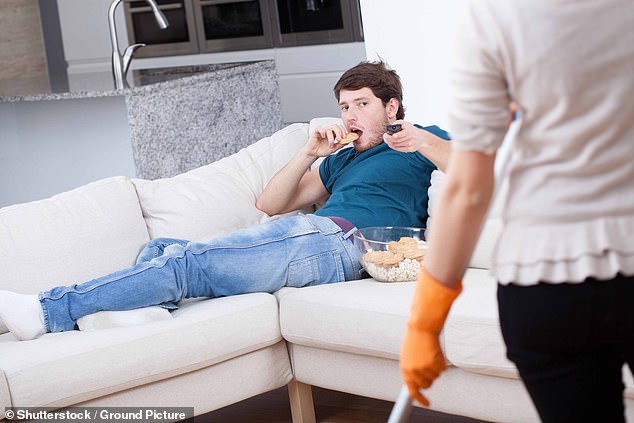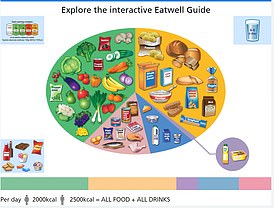<!–
<!–
<!– <!–
<!–
<!–
<!–
Scientists have confirmed what women have always known: men become fat and lazy after marriage.
Men start packing on the pounds within five years of getting married because they eat more calories and exercise less, researchers found.
They found that marriage is “associated with a significant effect” on BMI scores: an additional 5.2 percent of married men are overweight and obesity rates increase by 2.5 percent.
However, there was no evidence of a similar trend among women.

Researchers found that men start packing on the pounds within five years of getting married because they eat more calories and exercise less (stock)
The study was conducted in China, but researchers believe this is an international problem.
Shiwen Quan of the Chinese Academy of Social Sciences said: “This phenomenon, commonly known as ‘happy fatness’, has been corroborated by numerous cohort studies conducted in developed Western countries.
“After getting married, men tend to exercise less and eat more, which leads to a higher BMI.
‘Men face a significant risk of obesity as they age, so after marriage it is important that they do not “let themselves go” by maintaining healthy eating habits and exercising regularly.
“In contrast, there was no clear trend in female BMI after marriage.”
The study, published in Economics & Human Biology, found that male BMI scores continue to increase during the first five years after getting married, followed by a period of stabilization.
The researchers said it highlights the importance of promoting physical fitness and health management within families, and suggested that health authorities should target newlyweds with dietary advice.
They said public health policies should consider marriage as “a window of intervention” to address people’s weight control needs, and that “post-marriage body control plans” should be designed for both sexes.
Previous studies have found that the greater an individual’s satisfaction with their intimate relationship, the more likely they are to be obese.
A previous survey also found that the average person earns more than 2% after meeting their partner.


